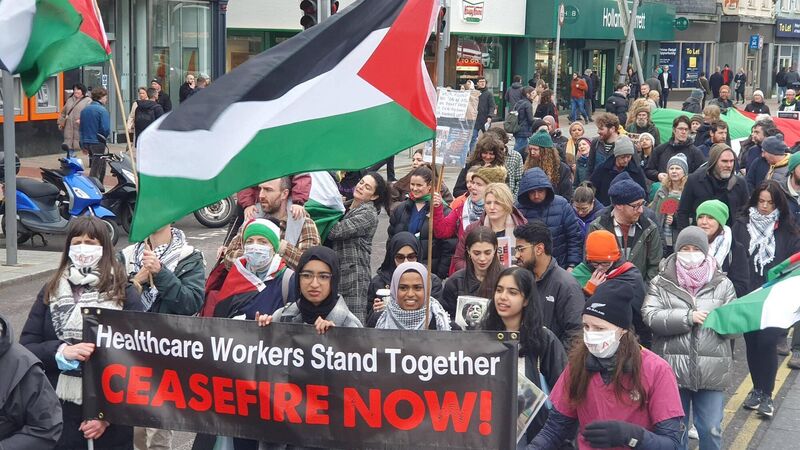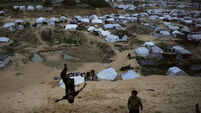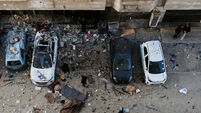The Government has drawn a lot of international criticism for insisting that the lives of the innocent people of Gaza are far more important than the seeming need of the Israeli state to wipe Hamas out of existence.
Since the outbreak of the conflict, Irish politicians have largely been on-point regarding the need to protect non- combatants from military action. That has been very much to their credit, as the world has witnessed more than 28,000 civilian deaths within the Gaza Strip.
Already a subscriber? Sign in
You have reached your article limit.
Subscribe to access all of the Irish Examiner.
Annual €130 €80
Best value
Monthly €12€6 / month
Introductory offers for new customers. Annual billed once for first year. Renews at €130. Monthly initial discount (first 3 months) billed monthly, then €12 a month. Ts&Cs apply.
CONNECT WITH US TODAY
Be the first to know the latest news and updates

















